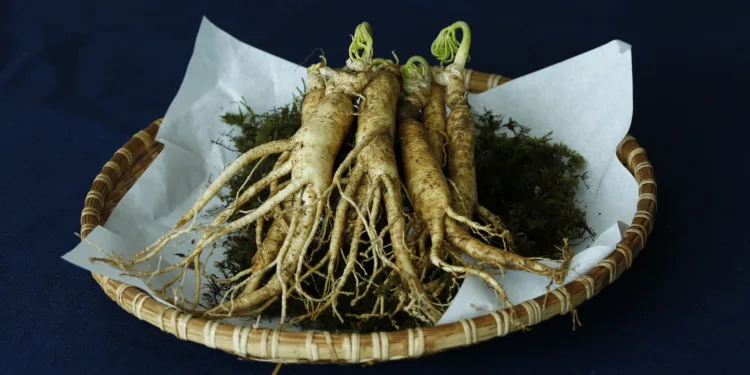Ginseng is one of the few herbs that Koreans use and swear by. This powerful herb contains antioxidants and anti-inflammatory properties that promote overall skin health. Ginseng is a product of slow-growing perennial plants native to North America and eastern Asia, including China, Korea, and Siberia. This herb has been used in medicine as well as skincare products for over a thousand years in South Korea. Now, it is making waves in the Western beauty industry as well.
If you are trying to achieve a radiant complexion and healthy skin, you have to try this herb as well.
How to Use Ginseng for Skin?
Ginseng can be used in a variety of ways to boost skin health and get a radiant complexion. Here are the most popular ways of treating your skin with Ginseng in South Korea.
Ginseng as a Mask – Since Koreans are a fan of sheet masks, they often address major skincare concerns through a Ginseng sheet mask. Sheet masks are super easy to use and effective in delivering quick results. So, you can find yourself a good Ginseng sheet mask and give your skin a boost as well. Since it is a powerful skincare ingredient, many popular Korean brands offer Ginseng sheet masks. It is not that hard to make a Ginseng sheet mask at home as well.
Here is what you need for the Ginseng sheet mask and how you can make it.
Ingredients:
- 1 tablespoon ginseng powder
- 1 tablespoon honey
- 1 sheet mask
Instructions:
- Mix the suggested quantities of ginseng powder and honey in a small bowl
- Make a paste
- Apply the mixture on the sheet mask evenly
Your DIY mask is ready. You can apply it to your face immediately and get glowing skin in less than 20 minutes.
Ginseng as a Toner – Ginseng tea is used as a toner by Korean women for a very long time. There are many Ginseng toners available in the market but you can make your own as well. All you have to do is make a Ginseng tea, cool it down, pour the tea into a spray bottle, and spritz it onto your damp face after cleansing.
Ginseng as a Serum – Ginseng serum also does wonders for your skin, the Koreans incorporate this herb in their skincare routine in the form of serum as well. The Ginseng serum is super easy to make, you can prepare it by mixing ginseng extract with a carrier oil like jojoba or argan oil. Keep the serum in your skincare products and apply it to your skin after cleansing and toning regularly.
Ginseng as a Moisturizer – The skincare addicts in South Korea believe in a DIY moisturizer prepared by adding aloe vera and Ginseng extract. You can try it or add the extract to any of your favorite moisturizers to boost skin health without any hassle. Adding the Ginseng extract to the moisturizer would soothe and calm the skin.
Benefits of Using Ginseng for Skin
Ginseng is an “it” ingredient in Korean skincare products due to the following potential benefits.
Stimulates Collagen Production – The ginsenosides in Ginseng are proven to stimulate collagen production. Moreover, this herb contains a lot of antioxidants that protect the skin from damage caused by free radicals that leads to premature aging. Therefore, incorporating Ginseng into your skincare routine improves skin elasticity and reduces fine lines and wrinkles.
Brighten Up Skin – Ginseng brightens up the complexion by stimulating blood circulation. The improved blood circulation means your skin receives adequate nutrients and oxygen it needs to glow.
Fights Acne and Soothe Skin- Ginseng is known to have remarkable anti-inflammatory and anti-bacterial properties. So, it’s quite effective in fighting acne-causing bacteria and soothing skin.
Regenerates Skin Cells – Studies have shown that Ginseng helps in regenerating skin cells as well. The assists in improving skin health as well as appearance.
Protects from environmental stressors – Ginseng can never be a substitute for sunscreen. However, it does contain a compound that provides mild protection against the skin from environmental stressors such as pollution and UV rays.

